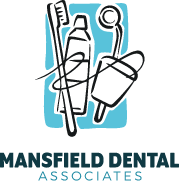Dental sealants offer extra cavity protection for your teeth. Typically, people associate sealants as a treatment for children’s teeth, but sealants can offer added security for adults, too. Many adults can suffer from issues that leave them more susceptible to developing cavities, and use sealants to lower their risk. Your dentist can review your oral health, and determine if you would be a prime candidate for dental sealants. Sealants are easy to apply, and can keep plaque and food debris from developing in areas that are harder to keep clean.
How Dental Sealants Protect Your Teeth
Dental sealants provide a buffer for your teeth. Your dentist applies the plastic coating over your teeth (usually the teeth engaged when you chew), which covers the enamel, and makes any pits or crevices inaccessible for plaque and food debris. Sealants also offer a protective layer against the bacteria-produced acids that can wear down your enamel. People who receive dental sealants should still brush and floss their teeth regularly.
Who Needs Dental Sealants?
Some people are more vulnerable to tooth decay than others. People who are afflicted with xerostomia (commonly referred to as dry mouth) are more likely to develop cavities. The saliva in your mouth is a natural defense against bacteria and food particles in your mouth. By reducing their cavity risk, dental sealants reduce the likelihood that they will need restorative treatments for their teeth. Dental sealants are commonly provided for children, as they often have not developed sufficiently thorough brushing and flossing habits.





Recent Comments